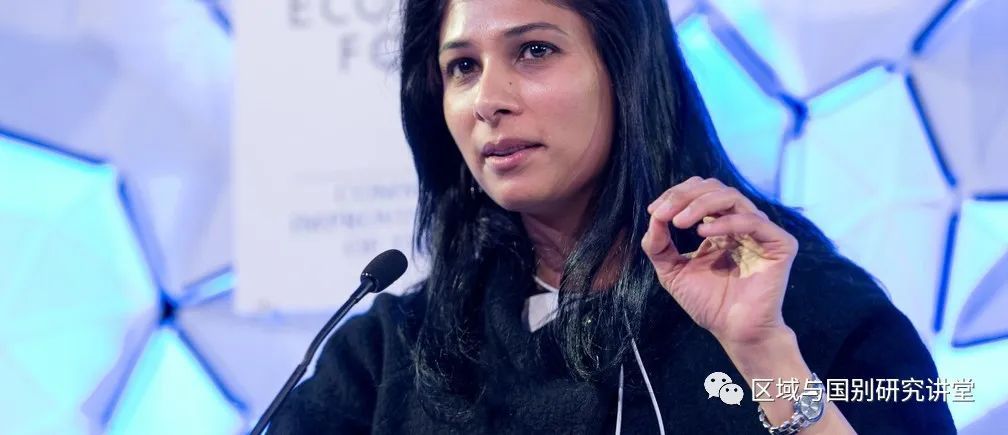- 手機(jī)專業(yè)圈
 m.quanpro.cn
m.quanpro.cn - 電腦專業(yè)圈電腦專業(yè)圈
請?jiān)陔娔X端訪問:
www.quanpro.cn - E-file管理后臺(tái)
諾貝爾經(jīng)濟(jì)獎(jiǎng)得主分析冠狀病毒大流行后世界經(jīng)濟(jì)會(huì)怎么樣?
By Joseph E. Stiglitz, Robert J. Shiller, Gita Gopinath, Carmen M. Reinhart, AdamPosen, Eswar Prasad, AdamTooze, Laura D’Andrea Tyson, Kishore Mahbubani
新冠病毒大流行病或?qū)⒂肋h(yuǎn)改變經(jīng)濟(jì)和金融秩序,為了預(yù)測病毒對經(jīng)濟(jì)的影響,美國《外交事務(wù)》雜志邀請了9位全球頂級思想家,分享他們的預(yù)測與判斷。這九位思想家有諾貝爾經(jīng)濟(jì)學(xué)獲獎(jiǎng)?wù)摺⒅髮W(xué)教授、國際貨幣基金首席經(jīng)濟(jì)學(xué)家、著名智庫專家、前美國政府高官等,他們的分享無疑將幫助我們在這個(gè)動(dòng)蕩的局勢里克服恐懼、增強(qiáng)定力。為了方便讀者閱讀,又保持原汁原味,我們采取了中英版同時(shí)呈現(xiàn)給大家。
After many weeks of lockdowns, tragic loss of life, and the shuttering ofmuch of the global economy, radical uncertainty is still the best way todescribe this historical moment. Will businesses reopen and jobs come back?Will we travel again? Will the flood of money from central banks andgovernments be enough to prevent a deep and lasting recession, or worse?
在經(jīng)歷了數(shù)周的封鎖、悲慘的死亡和全球經(jīng)濟(jì)關(guān)閉之后,描述這一歷史時(shí)刻的最佳方式就是徹底的不確定性。企業(yè)會(huì)重新開張嗎?就業(yè)崗位會(huì)回來嗎?我們還會(huì)去旅行嗎?來自中央銀行和政府的大量資金是否足以防止嚴(yán)重而持久的衰退,或者更糟?
This much is certain: The pandemic will lead to permanent shifts inpolitical and economic power in ways that will become apparent only later. To helpus make sense of the ground shifting beneath our feet, Foreign Policyasked nine leading thinkers, including two Nobel-Prize-winning economists, toweigh in with their predictions for the economic and financial order after thepandemic.
可以肯定的一點(diǎn)是:這一流行病將導(dǎo)致政治和經(jīng)濟(jì)權(quán)力的永久性轉(zhuǎn)移,其方式將在以后才會(huì)變得明顯。為了幫助我們理解這一翻天覆地的變化,《外交政策》雜志邀請九位頂級思想家,包括兩位諾貝爾經(jīng)濟(jì)學(xué)獎(jiǎng)得主,參與他們對大流行病后經(jīng)濟(jì)和金融秩序的預(yù)測。
We Need a Better BalanceBetween Globalization and Self-Reliance
我們需要在全球化和自力更生之間取得更好的平衡
by Joseph E. Stiglitz
Joseph E. Stiglitz is a professor ofeconomics at Columbia University, winner of the 2001 Nobel Memorial Prize ineconomics, and the author of People, Power, and Profits: ProgressiveCapitalism for an Age of Discontent, published in paperback in April2020. Twitter: @JosephEStiglitz
約瑟夫·E·斯蒂格利茨是哥倫比亞大學(xué)經(jīng)濟(jì)學(xué)教授,2001年諾貝爾經(jīng)濟(jì)學(xué)獎(jiǎng)獲得者,《人民、權(quán)力和利潤:不滿時(shí)代的進(jìn)步資本主義》一書作者,該書于2020年4月以平裝本出版。推特:@JosephEStiglitz

Economists used to scoff at calls for countries to pursue food or energysecurity policies. In a globalized world where borders don’t matter, theyargued, we could always turn to other countries if something happened in ourown. Now, borders suddenly do matter, as countries hold on tightly to facemasks and medical equipment, and struggle to source supplies. The coronaviruscrisis has been a powerful reminder that the basic political and economic unitis still the nation-state.
經(jīng)濟(jì)學(xué)家過去常常嘲笑各國推行糧食或能源安全政策的呼吁。他們認(rèn)為在邊界不再重要的全球化世界里,如果我們自己發(fā)生了什么事情,總是可以求助于其他國家。現(xiàn)在,邊境突然變得重要起來,因?yàn)楦鲊o緊地抓著口罩和醫(yī)療設(shè)備不放,很難找到供應(yīng)來源。冠狀病毒危機(jī)強(qiáng)烈地提醒人們,基本的政治和經(jīng)濟(jì)單位仍然是民族國家。
To build our seemingly efficient supply chains, we searched the world overfor the lowest-cost producer of every link in the chain. But we wereshort-sighted, constructing a system that is plainly not resilient,insufficiently diversified, and vulnerable to interruptions. Just-in-timeproduction and distribution, with low or no inventories, may be capable enoughof absorbing small problems, but we have now seen the system crushed by anunexpected disturbance.
為了建立看似高效的供應(yīng)鏈,我們在世界各地尋找供應(yīng)鏈中每個(gè)環(huán)節(jié)成本最低的生產(chǎn)商。但我們目光短淺,構(gòu)建了一個(gè)顯然缺乏彈性、不夠多樣化、容易受到干擾的體系。及時(shí)的生產(chǎn)和分配,低庫存或無庫存,可能足夠解決小問題,但我們現(xiàn)在已經(jīng)看到系統(tǒng)被意外的干擾所摧毀。
We should have learned the lesson of resilience from the 2008 financialcrisis. We had created an interconnected financial system that seemed efficientand was perhaps good at absorbing small shocks, but it was systemicallyfragile. If not for massive government bailouts, the system would havecollapsed as the real estate bubble popped. Evidently, that lesson went rightover our heads. The economic system we construct after this pandemic will haveto be less shortsighted, more resilient, and more sensitive to the fact thateconomic globalization has far outpaced political globalization. So long asthis is the case, countries will have to strive for a better balance betweentaking advantage of globalization and a necessary degree of self-reliance.
我們應(yīng)該從2008年金融危機(jī)中汲取關(guān)于經(jīng)濟(jì)彈性的教訓(xùn)。我們創(chuàng)造了一個(gè)看似高效、或許能夠很好地應(yīng)對小沖擊的相互關(guān)聯(lián)的金融體系,但是,從系統(tǒng)性來看,它是脆弱的。如果沒有大規(guī)模的政府救助,隨著房地產(chǎn)泡沫的破裂,這個(gè)體系就會(huì)崩潰。很明顯,我們完全理解了這一教訓(xùn)。在這場大流行病后,我們所構(gòu)建的經(jīng)濟(jì)體系必須不那么短視,更有彈性,對經(jīng)濟(jì)全球化遠(yuǎn)遠(yuǎn)超過政治全球化這一事實(shí)更加敏感。只要世界仍是這種情況,各國就必須在利用全球化和必要程度的自力更生之間取得更好的平衡。
This Wartime Atmosphere HasOpened a Window for Change
戰(zhàn)時(shí)氛圍為變革打開了一扇窗
by Robert J. Shiller
Robert J. Shiller is a professor ofeconomics at Yale University, winner of the 2013 Nobel Memorial Prize ineconomics, and the author of Narrative Economics: How Stories Go Viral andDrive Major Economic Events. Twitter: @RobertJShiller
羅伯特·J·希勒是耶魯大學(xué)經(jīng)濟(jì)學(xué)教授,2013年諾貝爾經(jīng)濟(jì)學(xué)獎(jiǎng)獲得者,《敘事經(jīng)濟(jì)學(xué):故事如何傳播并推動(dòng)重大經(jīng)濟(jì)事件》一書的作者。推特:@RobertJShiller

There are fundamental changes that happen from time to time—often duringtimes of war. Though the enemy is now a virus and not a foreign power, the COVID-19pandemic has created a wartime atmosphere in which such changes suddenly seempossible.
根本性的變化不時(shí)發(fā)生--通常是在戰(zhàn)爭時(shí)期。盡管我們的敵人現(xiàn)在是病毒,而不是外國勢力,但新冠肺炎大流行創(chuàng)造了一種戰(zhàn)時(shí)氛圍,在這種氛圍中,這一變化突然成為可能。
This atmosphere, with narratives of both suffering and heroism, isspreading with the disease. Wartime brings people together not only within acountry, but also between countries, as they share a common enemy like thevirus. Those who live in advanced countries can feel more sympathy with thosesuffering in poor countries because they are sharing a similar experience. Theepidemic is also bringing us together in countless Zoom get-togethers. Suddenlythe world seems smaller and more intimate.
這種充滿苦難和英雄主義的氛圍隨著疾病蔓延。戰(zhàn)爭不僅使一個(gè)國家的人民團(tuán)結(jié)在一起,而且使不同國家的人民團(tuán)結(jié)在一起,因?yàn)樗麄冇幸粋€(gè)共同的敵人,如病毒。生活在發(fā)達(dá)國家的人能夠?qū)ω毟F國家的人感到更多的同情,因?yàn)樗麄冇兄嗨频慕?jīng)歷。傳染病也讓我們在無數(shù)的Zoom會(huì)議中走到了一起。突然間世界變得更小更親密了。
There is also reason to hope that the pandemic has opened a window tocreating new ways and institutions to deal with the suffering, including moreeffective measures to stop the trend toward greater inequality. Perhaps the emergencypayments to individuals that many governments have made are a path to auniversal basic income. In the United States, better and more universal healthinsurance might just have been given new impetus. Since we are all on the sameside in this war, we may now find the motivation to build new internationalinstitutions allowing better risk-sharing among countries. The wartimeatmosphere will fade again, but these new institutions would persist.
我們也有理由希望,大流行病為創(chuàng)建新的方法和機(jī)構(gòu)來應(yīng)對苦難打開了一扇窗,包括采取更有效的措施來阻止不平等性加劇的趨勢。也許各國政府向個(gè)人支付的緊急款是通往普遍基本收入的道路。在美國,更好更普遍的醫(yī)療保險(xiǎn)可能剛剛獲得了新的動(dòng)力。由于我們在這場戰(zhàn)爭中都站在同一邊,我們現(xiàn)在能有動(dòng)力建立新的國際機(jī)構(gòu),使各國能夠更好地分擔(dān)風(fēng)險(xiǎn)。戰(zhàn)爭氛圍將再次消失,但這些新機(jī)構(gòu)將繼續(xù)存在。
The Real Risk Is PoliticiansExploiting Our Fears
真正的風(fēng)險(xiǎn)是政客利用我們的恐懼
by Gita Gopinath
Gita Gopinath is the chiefeconomist of the International Monetary Fund.
吉塔·戈皮納斯是國際貨幣基金組織的首席經(jīng)濟(jì)學(xué)家。

Over only a few weeks, a dramatic chain of events—tragic loss of life,paralyzed global supply chains, interrupted shipments of medical suppliesbetween allies, and the deepest global economic contraction since the 1930s—haslaid bare the vulnerabilities of open borders.
短短幾周內(nèi),一系列戲劇性事件--悲劇性的死亡、全球供應(yīng)鏈癱瘓、盟國之間的醫(yī)療物資運(yùn)輸中斷,以及20世紀(jì)30年代以來最嚴(yán)重的全球經(jīng)濟(jì)收縮--暴露了開放邊界的脆弱性。
If support for an integrated global economy was already declining beforeCOVID-19 struck, the pandemic will likely hasten the reassessment ofglobalization’s costs and benefits. Firms that are part of global supply chainshave witnessed firsthand the risks inherent in their interdependencies and thelarge losses caused by disruption. In future, these firms are likely to take greateraccount of tail risks, resulting in supply chains that are more local androbust—but less global. In emerging markets, whose embrace of globalizationincluded a steady opening to capital flows, we risk seeing capital controlsbeing reimposed as these countries scramble to shield themselves from thedestabilizing forces of the sudden economic stop. And even as containmentmeasures gradually come off worldwide, people may self-assess their individualrisks and decide to curtail travel indefinitely, reversing half a century ofrising international mobility.
如果在新冠肺炎襲擊之前,對全球經(jīng)濟(jì)一體化的支持已經(jīng)下降,那么這一流行病很可能會(huì)加速重新評估全球化的成本和收益。作為全球供應(yīng)鏈一部分的企業(yè)已經(jīng)親眼目睹了相互依賴固有的風(fēng)險(xiǎn)以及由中斷所造成的巨大損失。未來,這些公司可能會(huì)更多地考慮尾部風(fēng)險(xiǎn),致力于更加本地化和強(qiáng)健的供應(yīng)鏈-但全球化程度較低。新興市場擁抱全球化包括對資本流動(dòng)的穩(wěn)步開放,隨著這些國家爭相保護(hù)自己不受經(jīng)濟(jì)突然停止所帶來的不穩(wěn)定力量的影響,我們可能會(huì)看到他們重新實(shí)施資本管制。即使遏制措施逐漸在全球范圍內(nèi)實(shí)施,人們也可能會(huì)自我評估自身的風(fēng)險(xiǎn),并決定無限期地減少旅行,從而扭轉(zhuǎn)半個(gè)世紀(jì)來國際流動(dòng)性不斷上升的局面。
The real risk, however, is that this organic and self-interested shiftaway from globalization by people and firms will be compounded by somepolicymakers who exploit fears over open borders. They could imposeprotectionist restrictions on trade under the guise of self-sufficiency andrestrict the movement of people under the pretext of public health. It is nowin the hands of global leaders to avert this outcome and to retain the spiritof international unity that has collectively sustained us for more than 50years.
然而,真正的風(fēng)險(xiǎn)在于,隨著人們和企業(yè)對全球化趨勢的有機(jī)和自利的偏離,一些政策制定者會(huì)利用人們對開放邊界的擔(dān)憂。他們可以以自給自足為借口對貿(mào)易實(shí)行保護(hù)主義限制,并以公共衛(wèi)生為借口限制人員流動(dòng)。現(xiàn)在是全球領(lǐng)導(dǎo)人來避免出現(xiàn)這一結(jié)果,并保持50多年來支撐我們的國際團(tuán)結(jié)精神的時(shí)候了。
Another Nail in the Coffin ofGlobalization
全球化棺材里的另一顆釘子
by Carmen M. Reinhart
Carmen M. Reinhart is a professor ofinternational finance at the Harvard Kennedy School and the author, withKenneth S. Rogoff, of This Time Is Different: Eight Centuries of FinancialFolly.
卡門·M·萊因哈特是哈佛大學(xué)肯尼迪學(xué)院國際金融教授,與肯尼斯·S·羅格夫合著《這次不一樣:八個(gè)世紀(jì)以來的金融愚蠢》一書。

World War I and the global economic depression in the early 1930s usheredin the demise of a previous era of globalization. Apart from a resurgence oftrade barriers and capital controls, an important explanation for this demiseis the fact that more than 40 percent of all countries at the time entereddefault, cutting many of them off from the global capital markets until the1950s or much later. By the time World War II ended, the new Bretton Woodssystem combined domestic financial repression with extensive controls ofcapital flows, with little resemblance to the preceding era of global trade andfinance.
第一次世界大戰(zhàn)和1930年的全球經(jīng)濟(jì)蕭條導(dǎo)致了前一個(gè)全球化時(shí)代的終結(jié)。除了貿(mào)易壁壘和資本管制的死灰復(fù)燃,一個(gè)重要的解釋是,當(dāng)時(shí)超過40%的國家出現(xiàn)了違約,其中許多國家直到20世紀(jì)50年代或更晚才從全球資本市場退出。二戰(zhàn)結(jié)束時(shí),新的布雷頓森林體系將國內(nèi)金融抑制與對資本流動(dòng)的廣泛控制結(jié)合起來,與前一個(gè)全球貿(mào)易和金融時(shí)代幾乎沒有什么相似之處。
The modern globalization cycle has faced a series of blows since thefinancial crisis of 2008-2009: a European debt crisis, Brexit, and theU.S.-China trade war. The rise of populism in many countries further tilts thebalance toward home bias.
自2008-2009年金融危機(jī)以來,現(xiàn)代全球化周期面臨著一系列打擊:歐洲債務(wù)危機(jī)、英國脫歐和美中貿(mào)易戰(zhàn)。民粹主義在許多國家的興起進(jìn)一步將天平向本土傾斜。
The coronavirus pandemic is the first crisis since the 1930s to engulfboth advanced and developing economies. Their recessions may be deep and long.As in the 1930s, sovereign defaults will likely spike. Calls to restrict tradeand capital flows find fertile soil in bad times.
冠狀病毒大流行是1930年以來第一次席卷發(fā)達(dá)和發(fā)展中經(jīng)濟(jì)體的危機(jī)。他們的衰退可能既深重又漫長。與上個(gè)世紀(jì)30年代一樣,主權(quán)違約可能會(huì)激增。要求限制貿(mào)易和資本流動(dòng)的呼聲在經(jīng)濟(jì)不景氣時(shí)期找到了沃土。
Doubts about pre-coronavirus global supply chains, the safety ofinternational travel, and, at the national level, concerns aboutself-sufficiency in necessities and resilience are all likely to persist—evenafter the pandemic is brought under control (which may itself prove a lengthyprocess). The post-coronavirus financial architecture may not take us all theway back to the preglobalization era of Bretton Woods, but the damage tointernational trade and finance is likely to be extensive and lasting.
對前冠狀病毒全球供應(yīng)鏈、國際旅行安全的懷疑,以及在國家層面對必需品自給自足和彈性的擔(dān)憂都可能持續(xù)下去-即使在大流行病得到控制(這本身可能是一個(gè)漫長的過程)之后也是如此。后冠狀病毒的金融架構(gòu)可能不會(huì)把我們帶回到布雷頓森林體系的前全球化時(shí)代,但對國際貿(mào)易和金融的損害可能是廣泛和持久的。
The Economy’s Preexisting Conditions Are Made Worse by the Pandemic
大流行病使經(jīng)濟(jì)的先存條件惡化
by Adam Posen
Adam Posen is the president of thePeterson Institute for International Economics. Twitter: @AdamPosen
亞當(dāng)·波森是彼得森國際經(jīng)濟(jì)研究所所長。推特:@AdamPosen

The pandemic will worsen four preexisting conditions of the world economy.They will remain reversible through major surgery but turn chronic and damagingabsent such interventions. The first of these conditions is secularstagnation—the combination of low productivity growth, a lack of privateinvestment returns, and near-deflation. This will deepen as people stayrisk-averse and save more following the pandemic, which will persistentlyweaken demand and innovation.
大流行病將使世界經(jīng)濟(jì)的四種先存條件惡化。它們將通過巨幅波動(dòng)保持可逆性,但在沒有干預(yù)的情況下會(huì)產(chǎn)生慢性和破壞性波動(dòng)。第一個(gè)先存條件是長期停滯-低生產(chǎn)率增長、缺乏私人投資回報(bào)和接近通縮的組合。隨著大流行病持續(xù)削弱需求和創(chuàng)新,人們對風(fēng)險(xiǎn)的厭惡和儲(chǔ)蓄的增加,這種情況將進(jìn)一步加深。
Second, the gap between rich countries (along with a few emerging markets)and the rest of the world in their resilience to crises will widen further.
其次,富裕國家(以及一些新興市場)與世界其他國家在危機(jī)恢復(fù)力方面的差距將進(jìn)一步擴(kuò)大。
Third, partly as a result of flight to safety and the apparent riskinessof developing economies, the world will continue to be over-reliant on the U.S.dollar for financing and trade. Even while the United States becomes lessattractive for investment, its attraction will increase relative to most otherparts of the world. This will lead to ongoing dissatisfaction.
第三,由于資金逃向安全的目的國和發(fā)展中經(jīng)濟(jì)體明顯的風(fēng)險(xiǎn),世界將繼續(xù)在融資和貿(mào)易方面過度依賴美元。盡管美國對投資的吸引力有所下降,但其吸引力相對于世界其他大部分地區(qū)仍將增加。這將導(dǎo)致持續(xù)的不滿。
Finally, economic nationalism will increasingly lead governments to shutoff their own economies from the rest of the world. This will never producecomplete autarky, or anything close to it, but it will reinforce the first twotrends and increase resentment of the third.
最后,經(jīng)濟(jì)民族主義將越來越多地導(dǎo)致各國政府將本國經(jīng)濟(jì)與世界其他地區(qū)隔離開來。這將永遠(yuǎn)不會(huì)產(chǎn)生完全的閉關(guān)自守,或任何接近閉關(guān)自守的結(jié)果,但它將加強(qiáng)前兩種趨勢,并增加對第三種趨勢的怨恨。
More Than Ever, the WorldLooks to Central Bankers for Deliverance
世界比以往任何時(shí)候都更需要央行的幫助
by Eswar Prasad
Eswar Prasad is a professor oftrade policy at Cornell University, a senior fellow at the BrookingsInstitution, and the author of Gaining Currency: The Rise of the Renminbi.
埃斯瓦·普拉薩德是康奈爾大學(xué)貿(mào)易政策教授、布魯金斯學(xué)會(huì)高級研究員,也是《獲得貨幣:人民幣的崛起》一書的作者。

The economic and financial carnage wrought by the pandemic could leavedeep scars on the world economy. Central banks have stepped up to the challengeby tearing up their own rulebooks. The U.S. Federal Reserve has bolsteredfinancial markets with asset purchases and provided dollar liquidity to othercentral banks. The European Central Bank has declared “no limits” to itssupport of the euro and announced massive purchases of government and corporatebonds, and other assets. The Bank of England is financing government spendingdirectly. Even some emerging-market central banks, such as the Reserve Bank ofIndia, are considering extraordinary measures—all risks be damned.
大流行病造成的經(jīng)濟(jì)和金融浩劫可能給世界經(jīng)濟(jì)留下深刻的創(chuàng)傷。各國央行已經(jīng)通過撕毀自己的規(guī)則手冊來迎接挑戰(zhàn)。美聯(lián)儲(chǔ)通過購買資產(chǎn)來提振金融市場,并向其他央行提供美元流動(dòng)性。歐洲央行宣布對歐元的支持“沒有限制”,并宣布大規(guī)模購買政府、公司債券和其他資產(chǎn)。英格蘭銀行直接為政府的支出提供資金。就連印度儲(chǔ)備銀行等一些新興市場央行也在考慮采取非常規(guī)措施-去他媽的風(fēng)險(xiǎn)。
Fiscal stimulus by governments, on the other hand, has proved to bepolitically complicated, cumbersome to implement, and often difficult to targetwhere the need is greatest.
另一方面,事實(shí)證明政府的財(cái)政刺激在政治上很復(fù)雜,實(shí)施起來很麻煩,而且往往很難把目標(biāo)定在最需要的地方。
Central bankers, once considered cautious and conservative, have shownthey can act with agility, boldness, and creativity in desperate times. Evenwhen political leaders are unwilling to coordinate policies across borders,central bankers can act in concert.
曾經(jīng)被認(rèn)為是謹(jǐn)慎和保守的央行行長們已經(jīng)證明,他們可以在絕望時(shí)期以靈活、大膽和創(chuàng)造性的方式行事。即使政治領(lǐng)導(dǎo)人不愿協(xié)調(diào)跨境政策,央行行長也可以采取一致行動(dòng)。
Now and for a long time to come, central banks have become entrenched asthe first and main line of defense against economic and financial crises. Theymay come to rue this immense new role and the unrealistic burdens andexpectations it will impose on them.
現(xiàn)在和未來很長一段時(shí)間內(nèi),央行已經(jīng)成為抵御經(jīng)濟(jì)和金融危機(jī)的第一道也是最主要的防線。他們可能會(huì)對這一巨大的新角色以及它帶來的不現(xiàn)實(shí)的負(fù)擔(dān)和期望感到遺憾。
The Normal Economy Is NeverComing Back
正常經(jīng)濟(jì)一去不復(fù)返
by Adam Tooze
Adam Tooze is a history professor anddirector of the European Institute at Columbia University. His latest book is Crashed:How a Decade of Financial Crises Changed the World, and he is currentlyworking on a history of the climate crisis. Twitter: @adam_tooze
Adam Tooze是哥倫比亞大學(xué)歐洲研究所的歷史教授和主任。他的新書是《崩潰:十年金融危機(jī)如何改變世界》,他目前正在研究氣候危機(jī)的歷史。推特:@adam_Tooze

As the lockdowns began, the first impulse was to search for historicalanalogies—1914, 1929, 1941? Since then, what has come ever more to the fore isthe historical novelty of the shock we are living through. There is somethingnew under the sun. And it is horrifying.
隨著封鎖的開始,人們的第一個(gè)沖動(dòng)是尋找歷史類比-1914年、1929年、1941年?自那以后,更引人注目的是我們所經(jīng)歷前無古人的震驚。太陽底下有些可怕的新事務(wù)。
The economic fallout defies calculation. Many countries face a far deeperand more savage economic shock than they have ever previously experienced. Insectors like retail, already under fierce pressure from online competition, thetemporary lockdown may prove to be terminal. Many stores will not reopen, theirjobs permanently lost. Millions of workers, small-business owners, and theirfamilies are facing catastrophe. The longer we sustain the lockdown, the deeperthe economic scars, and the slower the recovery.
經(jīng)濟(jì)下行超出了計(jì)算范圍。許多國家面臨著比以往更嚴(yán)重、更殘酷的經(jīng)濟(jì)沖擊。在零售等行業(yè),面臨來自在線競爭的巨大壓力,暫時(shí)的封鎖可能會(huì)被證明是一種終結(jié)。許多商店將不會(huì)重新開張,(一些人)或?qū)⒂谰檬ニ麄兊墓ぷ鳌?shù)以百萬計(jì)的工人、小企業(yè)主和他們的家庭正面臨著災(zāi)難。我們維持封鎖的時(shí)間越長,經(jīng)濟(jì)創(chuàng)傷就越深,復(fù)蘇就越慢。
What we thought we knew about the economy and finance has been radicallydisturbed. Since the shock of the 2008 financial crisis, there has been a lotof talk about the need to reckon with radical uncertainty. We now know whattruly radical uncertainty looks like.
我們對經(jīng)濟(jì)和金融的了解被徹底打亂。自2008年金融危機(jī)沖擊以來,一直有很多人在談?wù)撚斜匾獞?yīng)對徹底的不確定性。
We are witnessing the largest combined fiscal effort since World War II,but it is already clear that the first round may not be enough. There are fewillusions about the unprecedented acrobatics that central banks are performing.To deal with the accumulated liabilities, history suggests some radicalalternatives, including a burst of inflation or an organized public default(which would not be as drastic as it sounds if it affects government debts heldby central banks).
我們現(xiàn)在知道了真正激進(jìn)的不確定性是什么樣子。我們正在見證自二戰(zhàn)以來規(guī)模最大的聯(lián)合財(cái)政努力,但已經(jīng)清楚的是,第一輪可能還不夠。對于央行正在上演的史無前例的雜技,人們幾乎沒有什么幻想。為了應(yīng)對積累的債務(wù),歷史建議了一些激進(jìn)的選擇,包括爆發(fā)通貨膨脹或有組織的公共違約(如果它影響到央行持有的政府債務(wù),就不會(huì)像聽起來那么嚴(yán)重)。
If the response by businesses and households is risk-aversion and a flightto safety, it will compound the forces of stagnation. If the public response tothe debts accumulated by the crisis is austerity, that will make matters worse.It makes sense to call instead for a more active, more visionary government tolead the way out of the crisis. But the question, of course, is what form thatwill take and which political forces will control it.
如果企業(yè)和家庭的反應(yīng)是規(guī)避風(fēng)險(xiǎn)和逃向安全,這將加劇經(jīng)濟(jì)停滯的力量。如果公眾對因危機(jī)累積的債務(wù)的反應(yīng)是緊縮,那將使情況變得更糟。我們有理由呼吁一個(gè)更積極、更有遠(yuǎn)見的政府來領(lǐng)導(dǎo)我們走出危機(jī)。但問題當(dāng)然是,它將采取何種形式,由何種政治力量控制。
Many Lost Jobs Will NeverReturn
許多失去的工作永遠(yuǎn)不會(huì)回來
by Laura D’Andrea Tyson
Laura D’Andrea Tyson is a professor atthe Haas School of Business at the University of California, Berkeley, and aformer chair of the U.S. President’s Council of Economic Advisers under theClinton Administration. Twitter: @LauraDTyson
勞拉·德安德烈亞·泰森是加州大學(xué)伯克利分校哈斯商學(xué)院教授,曾任克林頓政府時(shí)期美國總統(tǒng)經(jīng)濟(jì)顧問委員會(huì)主席。推特:@Laura DTyson

The pandemic and subsequent recovery will accelerate the ongoingdigitalization and automation of work—trends that have eroded middle-skill jobswhile increasing high-skill jobs during the last two decades and contributed tothe stagnation of median wages and rising income inequality.
大流行和隨后的復(fù)蘇將加速工作的數(shù)字化和自動(dòng)化-這一趨勢在過去二十年中侵蝕了中等技能工作,同時(shí)增加了高技能工作,并導(dǎo)致中位工資停滯和收入不平等加劇。
Changes in demand, many of them accelerated by the economic dislocationwrought by the pandemic, will change the future composition of GDP. The share ofservices in the economy will continue to rise. But the share of in-personservices will decline in retail, hospitality, travel, education, health care,and government as digitalization drives changes in the way these services areorganized and delivered.
需求的變化,其中許多由大流行病造成的經(jīng)濟(jì)混亂而加速,將改變今后國內(nèi)生產(chǎn)總值的構(gòu)成。服務(wù)業(yè)在經(jīng)濟(jì)中的比重將繼續(xù)上升。但隨著數(shù)字化改變了這些服務(wù)的組織和提供方式,個(gè)人服務(wù)在零售、酒店、旅游、教育、醫(yī)療和政府中的份額將會(huì)下降。
Many low-wage, low-skill, in-person service jobs, especially thoseprovided by small firms, will not return with the eventual recovery. However,workers providing essential services such as policing, firefighting, healthcare, logistics, public transportation, and food will be in greater demand,creating new job opportunities and increasing the pressure to raise wages andimprove benefits in these traditionally low-wage sectors. The downturn willaccelerate the growth of nonstandard, precarious employment—part-time workers,gig workers, and workers with multiple employers—leading to new portablebenefits systems that move with workers and broaden the definition of employer.New low-cost training programs, digitally delivered, will be required toprovide the skills required in new jobs. The sudden dependence of so many onthe ability to work remotely reminds us that a significant and inclusive expansionof Wi-Fi, broadband, and other infrastructure will be necessary to enable theaccelerating digitalization of economic activity.
許多低工資、低技能、面對面的服務(wù)工作,特別是那些由小公司提供的工作,不會(huì)隨著最終的復(fù)蘇而回來。然而,提供警務(wù)、消防、醫(yī)療、物流、公共交通和食品等基本服務(wù)的工人將面臨更大需求,這一需求將創(chuàng)造新的就業(yè)機(jī)會(huì),同時(shí)增加對這些傳統(tǒng)低工資部門薪酬和改善福利的壓力。經(jīng)濟(jì)衰退將加速非標(biāo)準(zhǔn)的、不穩(wěn)定的就業(yè)增長-兼職工人、零工和有多個(gè)雇主的工人-導(dǎo)致隨人一起流動(dòng)的新的可移動(dòng)福利系統(tǒng),并擴(kuò)大雇主的定義。新的低成本數(shù)字培訓(xùn)項(xiàng)目需要提供關(guān)于新工作所需技能的培訓(xùn)。這么多人對遠(yuǎn)程工作能力的突然依賴提醒我們,Wi-Fi、寬帶和其他基礎(chǔ)設(shè)施的大規(guī)模和包容性擴(kuò)張對實(shí)現(xiàn)經(jīng)濟(jì)活動(dòng)的加速數(shù)字化是十分必要的。
A More China-CentricGlobalization
更加以中國為中心的全球化
by Kishore Mahbubani
Kishore Mahbubani, a distinguishedfellow at the National University of Singapore's Asia Research Institute, isthe author of Has China Won? The Chinese Challenge to American Primacy.
馬凱碩是新加坡國立大學(xué)亞洲研究所的杰出研究員,《中國贏了嗎?中國對美國領(lǐng)導(dǎo)權(quán)的挑戰(zhàn)》一書的作者。

The COVID-19 pandemic will accelerate a change that had already begun: amove away from U.S.-centric globalization to a more China-centricglobalization.
新冠肺炎大流行將加速已經(jīng)開始的變化:從以美國為中心的全球化轉(zhuǎn)向更加以中國為中心的全球化。
Why will this trend continue? The American population has lost faith in globalizationand international trade. Free trade agreements are toxic, with or without U.S.President Donald Trump. By contrast, China has not lost faith. Why not? Thereare deeper historical reasons. Chinese leaders now know well that China’scentury of humiliation from 1842 to 1949 was a result of its own complacencyand a futile effort by its leaders to cut it off from the world. By contrast,the past few decades of economic resurgence were a result of global engagement.The Chinese people have also experienced an explosion of cultural confidence.They believe they can compete anywhere.
為什么這一趨勢會(huì)持續(xù)下去?美國人民對全球化和國際貿(mào)易失去了信心。自由貿(mào)易協(xié)定是有毒的,不管有沒有唐納德·特朗普總統(tǒng)。相比之下,中國并沒有喪失信心。為什么不呢?有更深層次的歷史原因。中國領(lǐng)導(dǎo)人現(xiàn)在清楚地知道,中國從1842年到1949年的百年屈辱是其自滿的結(jié)果,也是其領(lǐng)導(dǎo)人試圖將中國與世界隔絕的徒勞無功的結(jié)果。相比之下,過去幾十年的經(jīng)濟(jì)復(fù)蘇是全球參與的結(jié)果。中國人民也經(jīng)歷了文化自信的爆棚。他們相信他們可以在任何地方競爭。
Consequently, as I document in my new book, Has China Won?, the UnitedStates has two choices. If its primary goal is to maintain global primacy, itwill have to engage in a zero-sum geopolitical contest, politically andeconomically, with China. However, if the goal of the United States is toimprove the well-being of the American people—whose social condition hasdeteriorated—it should cooperate with China. Wiser counsel would suggest thatcooperation would be the better choice. However, given the toxic U.S. politicalenvironment toward China, wiser counsel may not prevail.
因此,正如我在新書《中國贏了嗎?》中所述,美國有兩個(gè)選擇。如果美國的首要目標(biāo)是維持全球領(lǐng)導(dǎo)地位,那么它就必須在政治和經(jīng)濟(jì)上與中國進(jìn)行一場零和地緣政治競爭。然而,如果美國的目標(biāo)是改善社會(huì)狀況惡化的美國人民的福祉,它就應(yīng)該與中國合作。明智的顧問會(huì)建議合作是更好的選擇。然而,鑒于美國對中國不利的政治環(huán)境,明智的建議可能不會(huì)占上風(fēng)。
來源:外交事務(wù)
翻譯:雷蒙
| 我也說兩句 |
| 版權(quán)聲明: 1.依據(jù)《服務(wù)條款》,本網(wǎng)頁發(fā)布的原創(chuàng)作品,版權(quán)歸發(fā)布者(即注冊用戶)所有;本網(wǎng)頁發(fā)布的轉(zhuǎn)載作品,由發(fā)布者按照互聯(lián)網(wǎng)精神進(jìn)行分享,遵守相關(guān)法律法規(guī),無商業(yè)獲利行為,無版權(quán)糾紛。 2.本網(wǎng)頁是第三方信息存儲(chǔ)空間,阿酷公司是網(wǎng)絡(luò)服務(wù)提供者,服務(wù)對象為注冊用戶。該項(xiàng)服務(wù)免費(fèi),阿酷公司不向注冊用戶收取任何費(fèi)用。 名稱:阿酷(北京)科技發(fā)展有限公司 聯(lián)系人:李女士,QQ468780427 網(wǎng)絡(luò)地址:www.arkoo.com 3.本網(wǎng)頁參與各方的所有行為,完全遵守《信息網(wǎng)絡(luò)傳播權(quán)保護(hù)條例》。如有侵權(quán)行為,請權(quán)利人通知阿酷公司,阿酷公司將根據(jù)本條例第二十二條規(guī)定刪除侵權(quán)作品。 |
